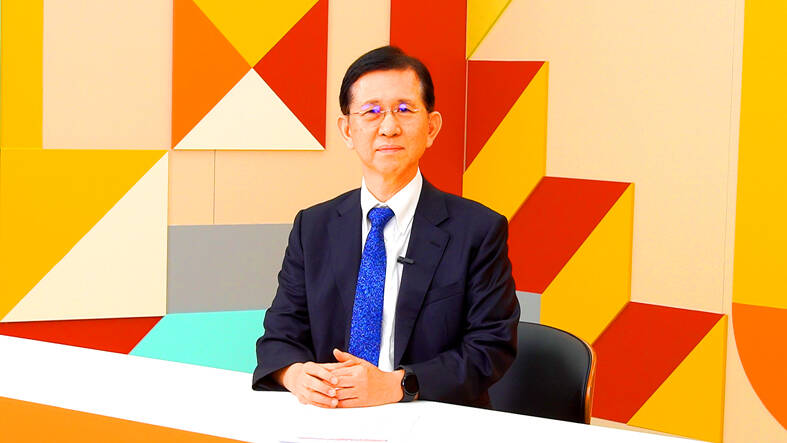“Computing Pool”: The ministry said it has approved access to computing resources for 60 companies and will begin accepting applications by Aug. 13.
Written by Xu Ziling and Jonathan Chin, reporters
Taiwan is investing NT$65 million (US$1.98 million) to build shared computing resources for qualified Taiwanese artificial intelligence (AI) developers, Digital Minister Huang Yan-nung announced yesterday.
AI technology is important to the country’s economic future, but the cost of computers and technicians is a major barrier for small and medium-sized businesses interested in entering the sector, he said in an interview with the Chinese-language Liberty Times, a sister publication of the Taipei Times.
The ministry’s “computing pool” program aims to solve that problem by providing computing power to companies that lack the resources to test ideas and promising concepts, Huang said.
Photo: Xu Ziling, Taipei Times
The platform consists of five Supermicro servers equipped with 32 Nvidia H100 and eight AMD M1300X processors for high-speed computing, he said, adding that the system will begin accepting applications by Aug. 13.
He said the ministry will approve access to computing resources for 60 Taiwanese companies, allowing each to use the processors for six weeks at a time.
He said providing government-backed servers to support private sector innovation would make research and development more efficient and strengthen the competitiveness of Taiwan’s technology sector.
Interested companies will need to apply to the Digital Industry Bureau for use of computing resources, but should note that priority will be given to companies established for less than eight years, he said.
Huang said the computing platform cannot be used for mining cryptocurrencies or training separate models through its application programming interface.
The ministry also received approval from parliament to use NT$10 billion from the National Development Fund to invest in AI technology innovation, Huang said.
He said details about the application process and eligibility for corporate partners will be announced next month.
Meanwhile, the ministry met with representatives from companies that own popular platforms including Google, Meta and Line to discuss ways to combat internet fraud, Huang said, adding that they had agreed in principle to the government’s request.
Those demands include a commitment to remove fraudulent ads more quickly, as well as a specific pledge from Meta to verify the identities of all advertisers on its platform to root out spoofing, he said.
He said the ministry was considering setting up an expert committee to counter disinformation as a more reliable alternative to giving government agencies the power to independently determine the veracity of information.
Huang said the commission would have the power to assess the veracity of content and order the removal of false or harmful information from social media platforms.
Moreover, Parliament passed the third reading of a set of amendments to the fraud laws affecting ministries and agencies, he said.
Huang explained that the new laws will require online advertising platforms to have a physical office or responsible person in Taiwan, to disclose their identities in business transactions, and to comply with the government’s anti-fraud measures.
Failure to comply with this obligation could result in fines of up to NT$100 million, an amount that could put substantial pressure on private companies, he said.
Comments are moderated. Please keep your comments relevant to the article. Comments containing insults, obscene language, personal attacks of any kind or promotion will be deleted and users will be banned. The final decision is at the discretion of Taipei Times.

